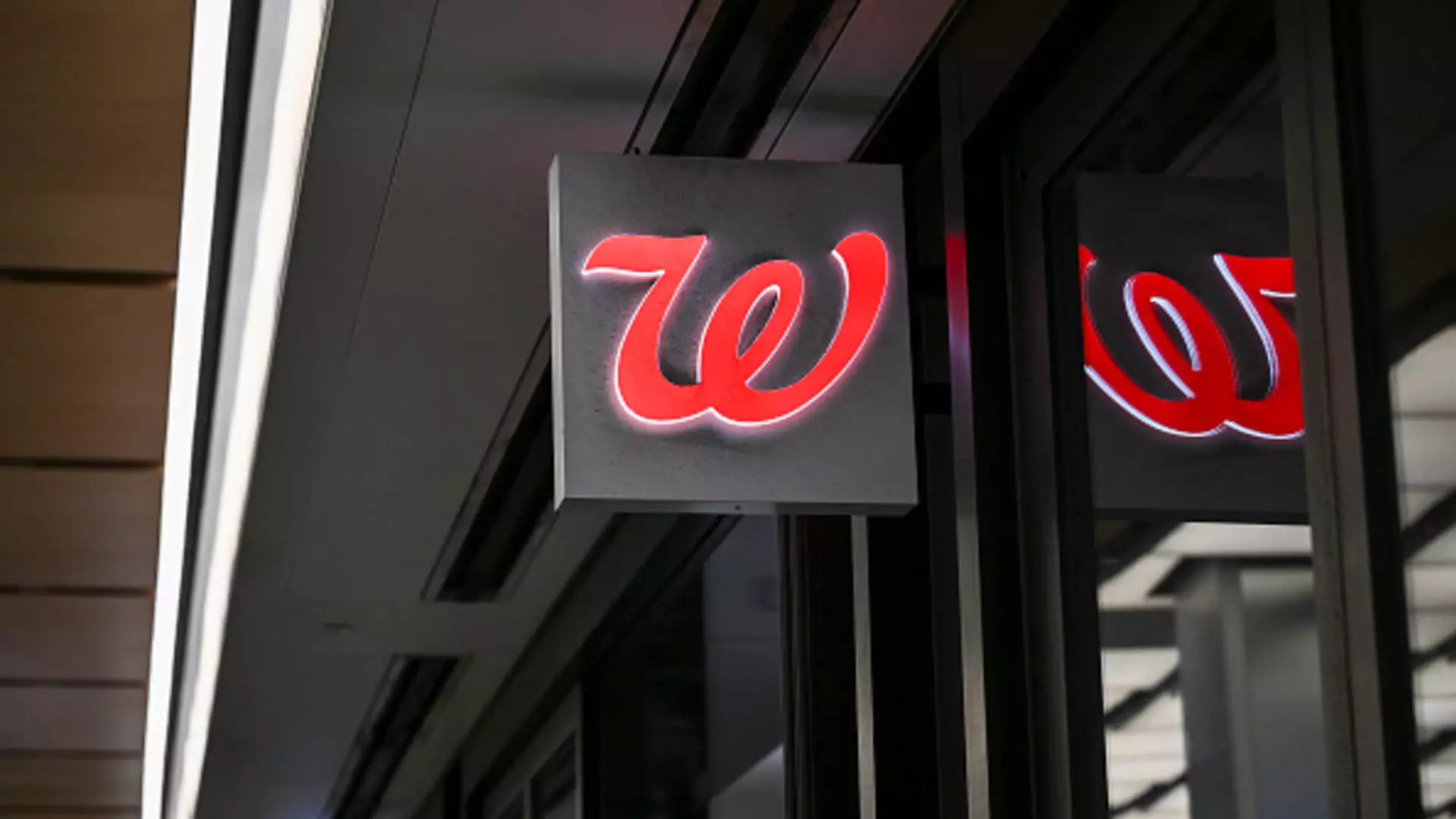In a move that reverberates across the retail and health sectors, Walgreens has announced its impending transition to private ownership under Sycamore Partners. This $10 billion deal, expected to close in the fourth quarter of this year, marks a significant shift in the company’s nearly century-long history as a publicly traded entity. The gravity of this decision cannot be understated; as Walgreens grapples with financial turmoil, the choice to eschew public scrutiny should raise alarms. What implications does this have for consumer trust and corporate accountability?
Many critics view the decision for Walgreens to withdraw its fiscal forecasts as an alarming signal about its long-term viability. As a company struggling with significant net losses—$2.85 billion in the recent quarter—whispers of its impending collapse are growing louder. An environment characterized by increased competition and regulatory pressures has left Walgreens with little room to maneuver. While cost-cutting measures may provide temporary fiscal relief, they can also precipitate a downward spiral as the company reduces its ability to innovate and serve its community effectively.
Market Response and Corporate Responsibility
Despite the troubling news, Walgreens saw a modest uptick in its stock price following the report, a fact that reflects the opportunistic nature of investors in a tumultuous market. However, a superficial rise in stock metrics should not distract from the underlying issues. Investors should be wary of jumping into a sinking ship, especially when continuing legal ramifications, including multi-billion dollar settlements related to the opioid crisis, haunt the company like a specter.
Walgreens CEO Tim Wentworth’s remarks about the company’s ongoing turnaround plan sound indifferent amid the seriousness of the current crisis. While he emphasizes “disciplined cost management,” one can’t help but wonder if the drive to streamline operations is merely a facade, masking deeper systemic issues that could tarnish the company’s image irreparably. After all, when results profoundly reflect “weaker front-end performance,” it prompts questions about whether Walgreens is prioritizing immediate gains over future responsibility to its customers.
Health Care or Health Hazard?
Another critical dimension of Walgreens’ predicament lies in its misadventure into the healthcare marketplace. The integration of health services has not gone as smoothly as planned. With heavy investments in initiatives like VillageMD, Walgreens risks placing too much capital into an area where it lacks expertise. It’s an ambitious venture; however, without a solid strategy or experience, it also runs the risk of becoming a liability.
The recent uptick in revenues, thanks to its retail pharmacy sector, should not overshadow the fact that expanding into healthcare requires a long-term vision deeply rooted in community engagement and ethical practices. If Walgreens genuinely aspires to be a healthcare leader, then addressing the systemic failures that have led to the current legal battles and financial losses is paramount. The question remains: is the company clear-eyed about its responsibilities, or is it merely chasing profits?
Consumer Trust and Future Implications
As Walgreens prepares for a softer landing as a private entity, the question of consumer trust looms large. With a business model historically tied to healthcare and community well-being, the retreat into private ownership could alienate the very customers it aims to serve. Many loyal customers may find it harder to engage with a company that seems to prioritize its financial recovery over consumer needs.
An analogy can be drawn to other giants in the health and retail industries who have tried to transition to privatization while grappling with the implications of maintaining customer loyalty. The common thread here is the risk of trading consumer trust for financial maneuverability—an unsettling perspective for everyday shoppers who rely on these establishments for their health and wellness needs. It raises an important ethical question: should companies in the health sector prioritize shareholder expectations over community welfare?
In sum, Walgreens finds itself at a crossroads. While the potential for a turnaround exists, the company’s journey through this maze of financial and ethical challenges remains fraught with uncertainty. As the public watches closely, Walgreens must navigate the complexities of a transforming industry while regaining its footing in the minds of consumers it has served for decades.

